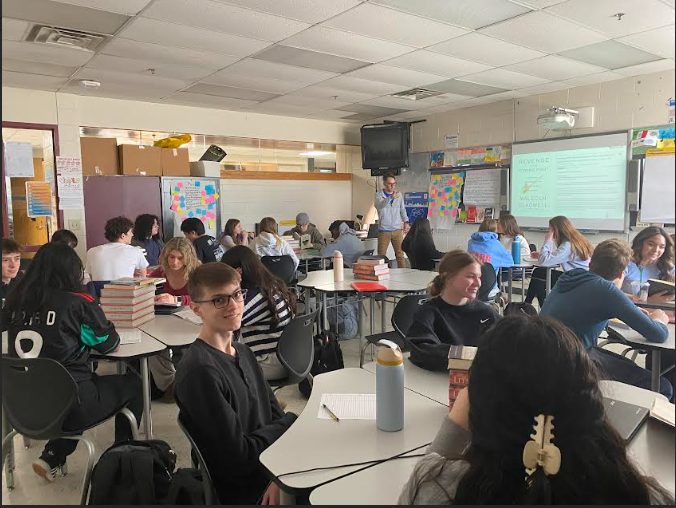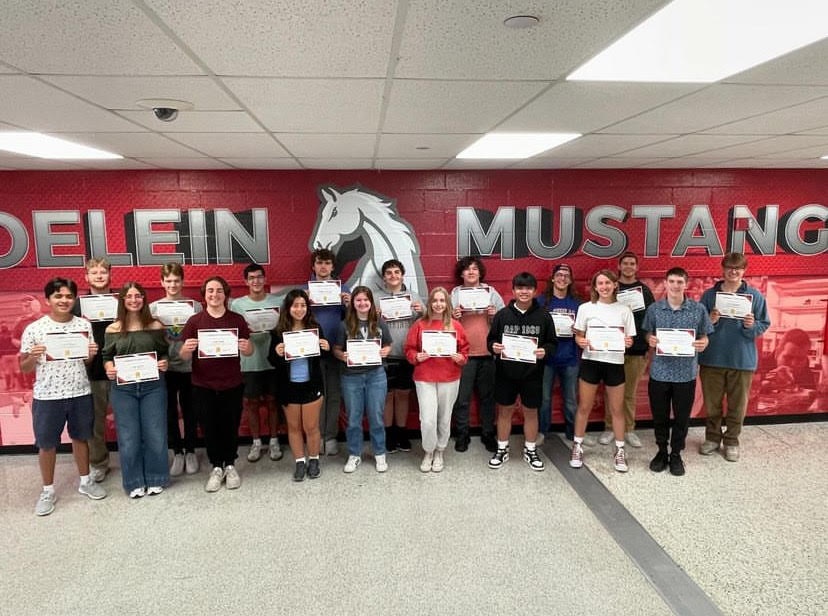Last year around April I released “Trashed: the lack of effective recycling programs at Mundelein High School,” where I investigated our school’s recycling system. Through countless interviews, including one from the Director of Facilities, Kevin Quinn, I found that our school solely recycles paper and cardboard products. The majority of our school population still believes that we recycle all things that they might recycle at home: plastic, metals, glass. In reality, when these products are recycled in our recycling bins, they contaminate everything. Contamination of the recycling bins means that the whole bin has to be dumped in the trash, including any products that could have been recycled. Since the release of this article, I have heard no feedback back from students or administrators. When I interviewed the sponsor of the Environmental Club, Caroline Gully, last year, she mentioned that recycling is going to be the goal of the club for 2023-2024 and that the article, “Trashed,” helped to influence this decision.
The Environmental club created a plan of action to help update the recycling system at MHS. Senior and Co-President of the Environmental club, Lucy Moran, said that “In order for us to expand to recycling plastics, we need to create better habits of actually doing what we have now. Our goal is to build up that habit and make everyone aware of our recycling situation so then we can move to a more broader recycling system.” Moran referred to the fact that students need to solely recycle paper and cardboard until our recycling system is adjusted to take other materials.
The first step in the Environmental Club’s plan was to educate the student body. They gave informational signs to the teachers to put above their recycling bins. These signs clearly listed what can and cannot be recycled. They also released a clip on the Friday Focus about the Environmental Club and its goals for recycling. However, it is up to the students to look at the posters and the video and then change their actions accordingly.
Moran specified that the effort to correctly recycle materials needs to be “‘[led] by student example,’ she added, “Recycling has been a big problem, and a lot of people have came to the Environmental Club specifically to talk about the problem. Getting feedback from students and teachers is the best way to see for us if there is a turning point, so then we can move forward and start building up our program.”
Caroline Gully, Environmental Club advisor and Spanish teacher, said that the club will keep in contact with the maintenance staff to see if the amount of contaminated recycling bins decreases. But ultimately, Gully said that “it’s our own job to police ourselves. We’re young adults, the teachers can’t do it [they’re] trying to teach, the maintenance staff can’t do it, they have a job to do as well and policing recycling isn’t in their job description. We need to do it ourselves.”
Therefore, the student body of MHS has to show that they want to change in order to help environmental efforts. “Recycling is the most common way to contribute to helping our environment. We are surrounded by paper and cardboard in schools. Since recycling is so important, and it’s such a big factor in schools, we need to focus on it. It hasn’t really been acknowledged in the past, but maintaining those good habits can help people to create better habits for the future by helping in their own way,” said Moran.
Additionally, Senior and Vice-President of the Environmental Club, Hanna Tenson, said, “You have to think about when you grow older and if you have kids or not, what kind of world they are going to live in. [Students and staff] can do this simple thing right now to contribute to helping our climate.”
Recycling paper and cardboard materials may seem like a minute effort in helping our environment, but it is necessary in order to move forward with updating our recycling system so that we can have a greater impact in waste reduction.

